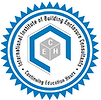
International Institute of Building Enclosure Consultants
International Institute of Building Enclosure Consultants - https://redirect.aecdaily.com/s18122/www.iibec.org
Displaying 1 - 25 of 108 results.
FIRST [1-25] [26-50] [51-75] [76-100] [101-108] NEXT LAST SHOW ALL

 With the increasing prominence of glass in new buildings and retrofits, the use of window film can raise the style, performance, and safety of today’s building projects. This course examines the use of various types of window film (decorative, solar control, and safety/security) and their role in improving occupant comfort and safety, lowering energy costs, and enhancing privacy.
With the increasing prominence of glass in new buildings and retrofits, the use of window film can raise the style, performance, and safety of today’s building projects. This course examines the use of various types of window film (decorative, solar control, and safety/security) and their role in improving occupant comfort and safety, lowering energy costs, and enhancing privacy.

https://redirect.aecdaily.com/s741679/www.aecdaily.com/course/764404
This course contains sustainable design information. See the course details page for more information.
This course is ONLINE: SELF-PACED. Experience it on your own schedule, at your convenience.

 The modern aesthetic of metal facades is in high demand for applications ranging from education, healthcare, and office to residential and multistory mixed use. Recent high-profile fires have reinforced the importance of choosing the right metal cladding system that meets thermal performance requirements while not compromising life safety. This course compares various core materials and focuses on what the code requires for metal cladding in terms of fire performance testing and results and includes case studies from fire events around the globe.
The modern aesthetic of metal facades is in high demand for applications ranging from education, healthcare, and office to residential and multistory mixed use. Recent high-profile fires have reinforced the importance of choosing the right metal cladding system that meets thermal performance requirements while not compromising life safety. This course compares various core materials and focuses on what the code requires for metal cladding in terms of fire performance testing and results and includes case studies from fire events around the globe.

https://redirect.aecdaily.com/s9727/www.aecdaily.com/course/870419
This course is ONLINE: SELF-PACED. Experience it on your own schedule, at your convenience.

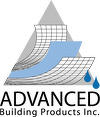 Building science experts acknowledge the need for drainage in both vertical and horizontal applications in order to eliminate moisture issues and extend the life of the building. This course examines foundation wall, green roof, and plaza deck applications and discusses the factors that impact drainage, including soil permeability, saturation, land cover, and loading. Flow rate standards are discussed, and drainage composite mat installation is explained.
Building science experts acknowledge the need for drainage in both vertical and horizontal applications in order to eliminate moisture issues and extend the life of the building. This course examines foundation wall, green roof, and plaza deck applications and discusses the factors that impact drainage, including soil permeability, saturation, land cover, and loading. Flow rate standards are discussed, and drainage composite mat installation is explained.

https://redirect.aecdaily.com/s671/www.aecdaily.com/course/992134
This course contains sustainable design information. See the course details page for more information.
This course is ONLINE: SELF-PACED. Experience it on your own schedule, at your convenience.

 This introductory course on spray polyurethane foam (SPF) covers component chemistry, different types of SPF, and the proper use of SPF in construction applications. In addition, the course addresses code compliance related to SPF for residential and commercial construction, as well as safe SPF installation practices. Participants will come away with a strong knowledge of how the proper use and application of spray foam can improve the indoor environment and the durability of the built environment.
This introductory course on spray polyurethane foam (SPF) covers component chemistry, different types of SPF, and the proper use of SPF in construction applications. In addition, the course addresses code compliance related to SPF for residential and commercial construction, as well as safe SPF installation practices. Participants will come away with a strong knowledge of how the proper use and application of spray foam can improve the indoor environment and the durability of the built environment.

https://redirect.aecdaily.com/s356556/www.aecdaily.com/course/1042076
This course contains sustainable design information. See the course details page for more information.
This course is part of one or more "Course Collections". Click here to view the details.
This course is ONLINE: SELF-PACED. Experience it on your own schedule, at your convenience.

 Concrete is one of the most widely used building materials throughout the world, and as such, it is in everyone’s best interest to consider more sustainable options. This course provides an overview of the properties of slag cement. Discussion topics include benefits, effects on plastics and hardened concrete, environmental profile including life cycle analysis (LCA) and environmental product declarations (EPDs), and various slag cement applications.
Concrete is one of the most widely used building materials throughout the world, and as such, it is in everyone’s best interest to consider more sustainable options. This course provides an overview of the properties of slag cement. Discussion topics include benefits, effects on plastics and hardened concrete, environmental profile including life cycle analysis (LCA) and environmental product declarations (EPDs), and various slag cement applications.

https://redirect.aecdaily.com/s5654/www.aecdaily.com/course/852630
This course contains sustainable design information. See the course details page for more information.
This course is ONLINE: SELF-PACED. Experience it on your own schedule, at your convenience.

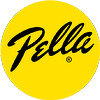 Fenestration openings are a critical component of a building envelope, especially in present-day sustainable, energy-efficient buildings. Building envelopes play an important role in controlling the movement of heat, bulk water, and water vapor. Designing fenestration openings for buildings that use continuous exterior insulation has a significant role in reducing thermal bridging and thus conserving energy. This course reviews the impact of exterior insulation on fenestration installation design. The course also explores solutions for a wide variety of wall system variations.
Fenestration openings are a critical component of a building envelope, especially in present-day sustainable, energy-efficient buildings. Building envelopes play an important role in controlling the movement of heat, bulk water, and water vapor. Designing fenestration openings for buildings that use continuous exterior insulation has a significant role in reducing thermal bridging and thus conserving energy. This course reviews the impact of exterior insulation on fenestration installation design. The course also explores solutions for a wide variety of wall system variations.

https://redirect.aecdaily.com/s15106/www.aecdaily.com/course/947826
This course contains sustainable design information. See the course details page for more information.
This course is ONLINE: SELF-PACED. Experience it on your own schedule, at your convenience.

 Thermally controlled environments such as cold storage freezers and coolers, and food processing and packaging facilities take many different forms. Their performance and functionality depend on their project-specific requirements and can be affected by the conditions the materials and systems are subjected to. This course discusses how insulated metal panels (IMPs) perform the necessary functions to provide an effective energy-efficient building envelope and why they are suitable for use within temperature-controlled hygienic environments—where performance is critical.
Thermally controlled environments such as cold storage freezers and coolers, and food processing and packaging facilities take many different forms. Their performance and functionality depend on their project-specific requirements and can be affected by the conditions the materials and systems are subjected to. This course discusses how insulated metal panels (IMPs) perform the necessary functions to provide an effective energy-efficient building envelope and why they are suitable for use within temperature-controlled hygienic environments—where performance is critical.

https://redirect.aecdaily.com/s9727/www.aecdaily.com/course/811766
This course contains sustainable design information. See the course details page for more information.
This course is ONLINE: SELF-PACED. Experience it on your own schedule, at your convenience.

 Upward-acting commercial sectional door systems can be a major contributor to controlling energy costs in buildings. This course evaluates the materials and construction of various door types and discusses the selection criteria and operation features that are available to enhance door performance for a range of applications.
Upward-acting commercial sectional door systems can be a major contributor to controlling energy costs in buildings. This course evaluates the materials and construction of various door types and discusses the selection criteria and operation features that are available to enhance door performance for a range of applications.

https://redirect.aecdaily.com/s10851/www.aecdaily.com/course/574010
This course is ONLINE: SELF-PACED. Experience it on your own schedule, at your convenience.

 Today’s modern metal roof panel coatings are designed to be low friction in order to self-clean. However, when snow and ice accumulate on the roof, their rapid release causes countless personal injuries, millions of dollars in property damage and liability claims, and business disruptions worldwide. This course provides an overview of snow retention systems that protect against these dangers. Information about components of both pad and bar styles, features, installation, and layout are presented.
Today’s modern metal roof panel coatings are designed to be low friction in order to self-clean. However, when snow and ice accumulate on the roof, their rapid release causes countless personal injuries, millions of dollars in property damage and liability claims, and business disruptions worldwide. This course provides an overview of snow retention systems that protect against these dangers. Information about components of both pad and bar styles, features, installation, and layout are presented.

https://redirect.aecdaily.com/s18890/www.aecdaily.com/course/592377
This course is ONLINE: SELF-PACED. Experience it on your own schedule, at your convenience.

 As architects push the boundaries of design, materials that offer flexibility are essential; single-skin architectural metal wall panel systems provide such flexibility. Presented here are architectural metal wall panels, their fabrication process, design possibilities, and applications. Also discussed are the components and features of a perfect wall and a multicomponent wall assembly, the testing, safety, and installation of multicomponent metal wall panel systems, and how metal wall panels and their manufacturers can contribute to sustainability objectives.
As architects push the boundaries of design, materials that offer flexibility are essential; single-skin architectural metal wall panel systems provide such flexibility. Presented here are architectural metal wall panels, their fabrication process, design possibilities, and applications. Also discussed are the components and features of a perfect wall and a multicomponent wall assembly, the testing, safety, and installation of multicomponent metal wall panel systems, and how metal wall panels and their manufacturers can contribute to sustainability objectives.

https://redirect.aecdaily.com/s10015/www.aecdaily.com/course/1034074
This course contains sustainable design information. See the course details page for more information.
This course is ONLINE: SELF-PACED. Experience it on your own schedule, at your convenience.

 Resiliency is a growing necessity. It is important to understand the impacts on the built environment resulting from natural and manmade disasters and disturbances and to design for those impacts now. Presented in this course is an overview of the benefits of using steel doors as part of a resilient design strategy for applications requiring resistance to blasts, tornadoes, and ballistics.
Resiliency is a growing necessity. It is important to understand the impacts on the built environment resulting from natural and manmade disasters and disturbances and to design for those impacts now. Presented in this course is an overview of the benefits of using steel doors as part of a resilient design strategy for applications requiring resistance to blasts, tornadoes, and ballistics.

https://redirect.aecdaily.com/s1152/www.aecdaily.com/course/869476
This course contains sustainable design information. See the course details page for more information.
This course is part of one or more "Course Collections". Click here to view the details.
This course is ONLINE: SELF-PACED. Experience it on your own schedule, at your convenience.

 A metal roof combines performance and aesthetics to give commercial and residential buildings strength, longevity, and character. This course examines the features and benefits of standing seam metal roofing and explains the factors to consider when selecting a project-specific metal roofing system.
A metal roof combines performance and aesthetics to give commercial and residential buildings strength, longevity, and character. This course examines the features and benefits of standing seam metal roofing and explains the factors to consider when selecting a project-specific metal roofing system.

https://redirect.aecdaily.com/s5533/www.aecdaily.com/course/969021
This course contains sustainable design information. See the course details page for more information.
This course is ONLINE: SELF-PACED. Experience it on your own schedule, at your convenience.

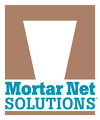 Masonry is an ideal sustainable building construction material as it is extremely durable, recyclable, and reusable. It allows for extraordinary design versatility, so it can meet both aesthetic and functional requirements. This course looks at the design elements, components, and construction techniques that characterize sustainable masonry cavity wall building envelopes.
Masonry is an ideal sustainable building construction material as it is extremely durable, recyclable, and reusable. It allows for extraordinary design versatility, so it can meet both aesthetic and functional requirements. This course looks at the design elements, components, and construction techniques that characterize sustainable masonry cavity wall building envelopes.

https://redirect.aecdaily.com/s367902/www.aecdaily.com/course/999984
This course contains sustainable design information. See the course details page for more information.
This course is ONLINE: SELF-PACED. Experience it on your own schedule, at your convenience.

 Sustainable construction and high-performance buildings offer tremendous benefits to building owners, building occupants, and the larger community. Course content goes beyond codes, standards, and sustainability rating systems to explore options and best practices for getting the most out of green construction. This course provides foundational information and application opportunities on topics such as optimizing a building's energy efficiency; installing innovative, alternative energy solutions; and addressing the larger community challenges of storm water management and the urban heat island effect.
Sustainable construction and high-performance buildings offer tremendous benefits to building owners, building occupants, and the larger community. Course content goes beyond codes, standards, and sustainability rating systems to explore options and best practices for getting the most out of green construction. This course provides foundational information and application opportunities on topics such as optimizing a building's energy efficiency; installing innovative, alternative energy solutions; and addressing the larger community challenges of storm water management and the urban heat island effect.

https://redirect.aecdaily.com/s5939/www.aecdaily.com/course/669011
This course contains sustainable design information. See the course details page for more information.
This course is ONLINE: SELF-PACED. Experience it on your own schedule, at your convenience.

 Insulating concrete form (ICF) products use a cost-effective and robust structural material option (reinforced concrete) to turn a building envelope into a high-performing thermal, moisture, and air enclosure with disaster resistance and built-in compliance with energy code requirements. As a result of ICF performance, building owners can complete a whole structure with ICFs and reinforced concrete, including intermediate suspended floors, rooftops, and multistory designs. This course examines the advancements in ICF technology and discusses the potential contribution of ICFs to supporting improved sustainability and resilience.
Insulating concrete form (ICF) products use a cost-effective and robust structural material option (reinforced concrete) to turn a building envelope into a high-performing thermal, moisture, and air enclosure with disaster resistance and built-in compliance with energy code requirements. As a result of ICF performance, building owners can complete a whole structure with ICFs and reinforced concrete, including intermediate suspended floors, rooftops, and multistory designs. This course examines the advancements in ICF technology and discusses the potential contribution of ICFs to supporting improved sustainability and resilience.

https://redirect.aecdaily.com/s2426/www.aecdaily.com/course/661015
This course contains sustainable design information. See the course details page for more information.
This course is part of one or more "Course Collections". Click here to view the details.
This course is ONLINE: SELF-PACED. Experience it on your own schedule, at your convenience.

 Continuous insulation is part of building standards and state and energy codes due to its ability to reduce thermal bridging and the associated heat loss and energy consumption. This course looks at the use of polyisocyanurate as a continuous insulation in Type V and residential construction and its use as a multifunctional envelope component—air barrier, weather-resistive barrier, and vapor retarder—by reviewing code requirements for the building envelope.
Continuous insulation is part of building standards and state and energy codes due to its ability to reduce thermal bridging and the associated heat loss and energy consumption. This course looks at the use of polyisocyanurate as a continuous insulation in Type V and residential construction and its use as a multifunctional envelope component—air barrier, weather-resistive barrier, and vapor retarder—by reviewing code requirements for the building envelope.

https://redirect.aecdaily.com/s20151/www.aecdaily.com/course/664137
This course contains sustainable design information. See the course details page for more information.
This course is part of one or more "Course Collections". Click here to view the details.
This course is ONLINE: SELF-PACED. Experience it on your own schedule, at your convenience.

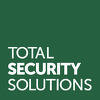 Incorporating bulletproof glass into any facility is a sizable investment; however, it is a small price to pay for the protection of human lives. This course illustrates how to maximize that investment by selecting and installing the appropriate system for the threat level and the functional needs of the client. Discussed are UL protection level ratings; types of bullet-resistant barrier systems and their components; planning, production, and installation of systems; security window film vs. bullet-resistant glass; and project security checklists.
Incorporating bulletproof glass into any facility is a sizable investment; however, it is a small price to pay for the protection of human lives. This course illustrates how to maximize that investment by selecting and installing the appropriate system for the threat level and the functional needs of the client. Discussed are UL protection level ratings; types of bullet-resistant barrier systems and their components; planning, production, and installation of systems; security window film vs. bullet-resistant glass; and project security checklists.

https://redirect.aecdaily.com/s455170/www.aecdaily.com/course/847332
This course is part of one or more "Course Collections". Click here to view the details.
This course is ONLINE: SELF-PACED. Experience it on your own schedule, at your convenience.

 Standing seam metal roofing has been used successfully in the United States for centuries, and proper specification is key to realizing its intended performance. Examined here are: the factors driving the demand for standing seam metal roof and wall systems; standing seam panel basics; gauge and grade; oil canning; specification considerations; testing standards; and forming, delivery, storage, handling and warranty.
Standing seam metal roofing has been used successfully in the United States for centuries, and proper specification is key to realizing its intended performance. Examined here are: the factors driving the demand for standing seam metal roof and wall systems; standing seam panel basics; gauge and grade; oil canning; specification considerations; testing standards; and forming, delivery, storage, handling and warranty.

https://redirect.aecdaily.com/s5147/www.aecdaily.com/course/856363
This course contains sustainable design information. See the course details page for more information.
This course is ONLINE: SELF-PACED. Experience it on your own schedule, at your convenience.

 With the ever-increasing focus on the sustainable built environment, building owners, architects, engineers, and contractors are incorporating structural steel into their designs. Presented here is a comprehensive view of the cradle-to-cradle structural steel supply chain from a sustainability perspective. Also discussed are steel production and design, steel’s potential contribution to LEED v4 credits, thermal capacity, and the environmental and life cycle benefits of prefabricated fireproof steel columns.
With the ever-increasing focus on the sustainable built environment, building owners, architects, engineers, and contractors are incorporating structural steel into their designs. Presented here is a comprehensive view of the cradle-to-cradle structural steel supply chain from a sustainability perspective. Also discussed are steel production and design, steel’s potential contribution to LEED v4 credits, thermal capacity, and the environmental and life cycle benefits of prefabricated fireproof steel columns.

https://redirect.aecdaily.com/s753464/www.aecdaily.com/course/844146
This course contains sustainable design information. See the course details page for more information.
This course is ONLINE: SELF-PACED. Experience it on your own schedule, at your convenience.

 Cellulose insulation has been used successfully by builders and designers for hundreds of years to provide comfort and warmth. Today, builders and designers also consider sustainability principles, climate change, occupant health and wellness issues, energy conservation, and carbon sequestration. Advanced cellulose insulation addresses all those areas as well. This course explains its environmental benefits, including its carbon capture ability, how it improves occupant health and well-being, and its numerous high-performance thermal, acoustic, and fire-resistant attributes.
Cellulose insulation has been used successfully by builders and designers for hundreds of years to provide comfort and warmth. Today, builders and designers also consider sustainability principles, climate change, occupant health and wellness issues, energy conservation, and carbon sequestration. Advanced cellulose insulation addresses all those areas as well. This course explains its environmental benefits, including its carbon capture ability, how it improves occupant health and well-being, and its numerous high-performance thermal, acoustic, and fire-resistant attributes.

https://redirect.aecdaily.com/s379494/www.aecdaily.com/course/1067199
This course contains sustainable design information. See the course details page for more information.
This course is part of one or more "Course Collections". Click here to view the details.
This course is ONLINE: SELF-PACED. Experience it on your own schedule, at your convenience.

 Some roof underlayments can trap moisture, degrade insulation performance, and create excessive condensation accumulation. Breathable, self-adhering roof underlayments enhance the drying capacity of the roofing assembly and therefore improve roofing performance. This course investigates current developments in these easy-to-install, vapor-permeable roof underlayments that mitigate water intrusion, reduce long-term exposure to wetted substrates, and extend the life of the overall structure. The course concludes with several sample installations.
Some roof underlayments can trap moisture, degrade insulation performance, and create excessive condensation accumulation. Breathable, self-adhering roof underlayments enhance the drying capacity of the roofing assembly and therefore improve roofing performance. This course investigates current developments in these easy-to-install, vapor-permeable roof underlayments that mitigate water intrusion, reduce long-term exposure to wetted substrates, and extend the life of the overall structure. The course concludes with several sample installations.

https://redirect.aecdaily.com/s480282/www.aecdaily.com/course/979622
This course is ONLINE: SELF-PACED. Experience it on your own schedule, at your convenience.

 When the asphalt fumes, open flame, and kettles that accompany hot-applied roofing are not permissible, cold-applied roofing is an option. There are a variety of types of cold-applied roofing that offer easy portability of materials to the roof, smaller roofing crews, ease of application, and a low-VOC option. In this course, we focus on the adhesive application of modified bitumen membranes using bituminous cold-process adhesives, the adhesive types, their components and characteristics, application methods, and design and use considerations.
When the asphalt fumes, open flame, and kettles that accompany hot-applied roofing are not permissible, cold-applied roofing is an option. There are a variety of types of cold-applied roofing that offer easy portability of materials to the roof, smaller roofing crews, ease of application, and a low-VOC option. In this course, we focus on the adhesive application of modified bitumen membranes using bituminous cold-process adhesives, the adhesive types, their components and characteristics, application methods, and design and use considerations.

https://redirect.aecdaily.com/s11163/www.aecdaily.com/course/623569
This course contains sustainable design information. See the course details page for more information.
This course is ONLINE: SELF-PACED. Experience it on your own schedule, at your convenience.

 Identify key fenestration design criteria that will fortify buildings against ballistic, blast, forced entry, and environmental threats.
Identify key fenestration design criteria that will fortify buildings against ballistic, blast, forced entry, and environmental threats.

https://redirect.aecdaily.com/s1048457/www.aecdaily.com/course/1058538
This course is ONLINE: SELF-PACED. Experience it on your own schedule, at your convenience.

 The construction of residential and commercial buildings that use less energy to operate and are long lived is a key part of sustainable design. Insulated concrete forms (ICFs) provide the necessary U-factor, airtightness, resiliency, and durability for all building types. Insulated concrete forms in residential and commercial construction projects offer excellent thermal performance and reduced energy consumption and operating costs, while maintaining a very comfortable and healthy interior environment. This course examines the ICF wall, including materials and components, and discusses design considerations and construction.
The construction of residential and commercial buildings that use less energy to operate and are long lived is a key part of sustainable design. Insulated concrete forms (ICFs) provide the necessary U-factor, airtightness, resiliency, and durability for all building types. Insulated concrete forms in residential and commercial construction projects offer excellent thermal performance and reduced energy consumption and operating costs, while maintaining a very comfortable and healthy interior environment. This course examines the ICF wall, including materials and components, and discusses design considerations and construction.

https://redirect.aecdaily.com/s420795/www.aecdaily.com/course/874439
This course contains sustainable design information. See the course details page for more information.
This course is part of one or more "Course Collections". Click here to view the details.
This course is ONLINE: SELF-PACED. Experience it on your own schedule, at your convenience.

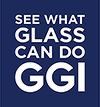 Due to advancements in architectural decorative glass technology, the number of design options available to help designers and architects achieve the specific aesthetics and performance requirements they desire has dramatically increased. This course provides a review of architectural decorative glass including product options, applications, features, and specification considerations. Also discussed is how decorative glass can contribute to sustainable design and LEED® initiatives.
Due to advancements in architectural decorative glass technology, the number of design options available to help designers and architects achieve the specific aesthetics and performance requirements they desire has dramatically increased. This course provides a review of architectural decorative glass including product options, applications, features, and specification considerations. Also discussed is how decorative glass can contribute to sustainable design and LEED® initiatives.

https://redirect.aecdaily.com/s661112/www.aecdaily.com/course/880724
This course contains sustainable design information. See the course details page for more information.
This course is ONLINE: SELF-PACED. Experience it on your own schedule, at your convenience.